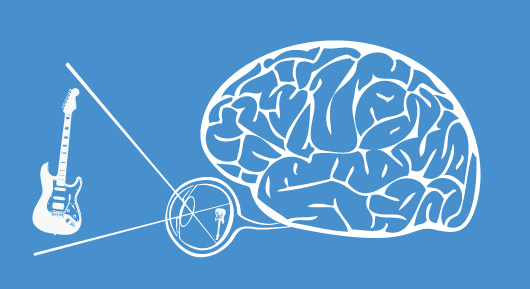Matrix-style learning sounds like an impossibility, yet new research suggests it might become reality.
Boston University and ATR Computational Neuroscience Laboratories in Kyoto have conducted experiments in which they demonstrated that they could induce brain activity patterns through a person's visual cortex, thereby improving a subject's performance on a visual task. The researchers used decoded functional magnetic resonance imaging (fMRI) and neurofeedback to make the subject's brain activity match that of another person who had previously learned the task.
The result, say researchers, is a novel approach to learning sufficient to cause long-lasting improvement in tasks that require visual performance. This research might some day lead to applications that could enable you to learn to shred a guitar like Hendrix while not even thinking about what you want to learn. According to lead author and BU neuroscientist Takeo Watanabe, "We found that subjects were not aware of what was to be learned while behavioral data obtained before and after the neurofeedback training showed that subjects' visual performance improved specifically for the target orientation, which was used in the neurofeedback training."
Video explanation here: Researchers explain Decoded Neurofeedback
Via: www.nsf.gov

Share your thoughts and join the technology debate!
Be the first to comment